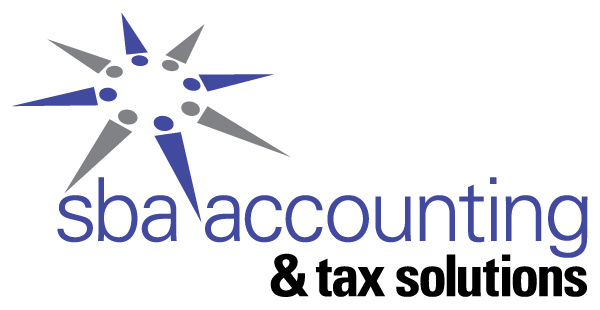As tax seasons come and go, many individuals and businesses find themselves wondering what exactly a tax write-off is and how it can benefit them. Find out what tax write-offs are and how they work here.
What Is a Tax Write-Off?
A tax write-off, or tax deduction, is a legitimate expense that can be claimed to reduce your taxable income. When you file your tax return, the Internal Revenue Service (IRS) allows you to deduct certain expenses from your reported income, lowering your taxable income and, ultimately, the amount of taxes you owe.
How Do Tax Write-Offs Work?
When you claim a tax write-off, you are essentially telling the IRS that you have spent money on an expense related to your income. The IRS then allows you to subtract that expense from your taxable income.
For example, if you are self-employed and spend $1,000 on office supplies, you can claim that as a tax write-off. This will reduce your taxable income by $1,000, which will lower your tax bill by the amount of your tax bracket.
Who Can Write Off Expenses on Their Income Taxes?
Three categories of taxpayers can claim tax write-offs: individuals, self-employed individuals, and businesses and corporations.
The specific expenses you can claim as tax write-offs will vary depending on your category of taxpayer. However, there are some common expenses that all three categories of taxpayers can claim, such as medical expenses and charitable contributions.
- Individuals
Individuals can claim tax write-offs for various expenses, including medical expenses, charitable contributions, and mortgage interest.
Medical Expenses
You can deduct medical expenses that exceed 7.5% of their adjusted gross income (AGI). This includes expenses such as doctor’s visits, hospital bills, prescription drugs, and medical insurance premiums.
Charitable Contributions
Individuals can deduct the amount of money they donate to qualified charities from their taxable income. However, there are some restrictions on what types of charities qualify for the deduction.
Mortgage Interest
Some individuals can deduct the interest they pay on their mortgage up to a certain amount. The amount of the deduction depends on the type of mortgage you have and your income level.
In addition to these common tax write-offs, individuals may also be able to deduct other expenses, such as:
- State and local taxes – State and local income, property, and sales taxes.
- Casualty and Theft losses – Casualty and theft loss(es) from a federally declared disaster.
- Education expenses –Tuition and fees for education expenses required for their job or that lead to a new job.
If you are unsure whether you can claim a particular expense as a tax write-off, consult a tax advisor, such as SBA Accounting and Tax Solutions. We can help you determine which expenses you can claim and how to document your expenses properly.
- Self-Employed Individuals
Self-employed individuals can claim tax write-offs for a wider range of expenses than individuals. This includes business expenses, home office expenses, and vehicle expenses.
Business Expenses
If you’re self-employed, you can deduct a wide range of business expenses, including the cost of goods sold, rent, utilities, salaries, and marketing expenses. You can also deduct expenses related to their profession, such as professional dues, subscriptions, and travel expenses.
Home Office Expenses
People who use part of their home for business purposes can deduct a portion of their home expenses, such as rent, utilities, and insurance. The deduction is based on the percentage of their home used for business purposes.
Vehicle Expenses
Those who are self-employed and use their vehicle for business can deduct a portion of their vehicle expenses, such as gas, oil, and repairs. The amount of the deduction is based on the percentage of time that the vehicle is used for business purposes. Other deductible expenses might include:
- Health insurance premiums – Self-employed individuals can deduct the cost of health insurance premiums they pay for themselves and their families.
- Retirement plan contributions – 401(k) or an IRA.
- Education expenses – tuition and fees for education expenses that are required for their business or that lead to a new business.
- Businesses & Corporations
Businesses and corporations can claim tax write-offs for a wide range of expenses, including equipment purchases, rent, and salaries.
Equipment Purchases
Some businesses can deduct the cost of equipment they purchase for business use. This includes tangible assets, such as computers and furniture, and intangible assets, such as software and patents.
Rent
Eligible businesses and corporations can deduct the rent they pay for business premises. This includes both the rent for office space and the rent for manufacturing space.
Salaries
You can deduct the salaries that they pay to employees. This includes both the salaries of regular employees and the salaries of executives. Other examples might include:
- Advertising expenses: Businesses and corporations can deduct the cost of advertising their products or services.
- Legal and accounting fees: Businesses and corporations can deduct the cost of legal and accounting fees that they incur in the course of doing business.
- Travel expenses: Businesses and corporations can deduct the cost of travel expenses that are incurred in the course of doing business.
Expenses That Are Non-Deductible
There are some expenses that you cannot write off on your taxes, including:
- Child support: Child support payments are not tax-deductible.
- Alimony: Alimony payments are not tax-deductible.
- Political contributions: Political contributions are not tax-deductible.
- Roth IRA contributions: Contributions to a Roth IRA cannot be deducted from your taxable income.
- Moving expenses: Moving expenses are only deductible if you meet certain requirements, such as being relocated in the military.
- Luxury items: You cannot write off the cost of luxury items, such as jewelry, furs, and expensive cars.
- Personal expenses: You cannot write off personal expenses, such as clothing, food, and entertainment.
- Investment expenses: You cannot write off investment expenses, such as the cost of buying and selling stocks and bonds.
- Illegal expenses: You cannot write off expenses incurred in connection with illegal activities.
Why Can’t You Write These Expenses Off?
- The expense must be ordinary and necessary: This means that the expense must be common and accepted in your line of business. For example, you can’t write off the cost of a new car if you’re a stay-at-home parent.
- The expense must be incurred for business purposes: This means that the expense must be directly related to your business activities. For example, you can’t write off the cost of a vacation if you’re a self-employed contractor.
- The expense must be documented: You must keep good records of your expenses in order to claim them as tax write-offs. This includes receipts, canceled checks, and other documentation.
- The expense must meet the specific requirements of the tax law: The tax law has specific requirements for what expenses can be deducted. For example, the cost of meals and entertainment can only be deducted if they are incurred for business purposes and if they are reasonable in amount.
Get Expert Tax Advice in Fresno!
If you have any questions about the tax write-offs you may qualify for or need help, please contact our experienced accountants today. We can help you understand your options and ensure you file your taxes accurately while keeping more of your money.
Call now to ensure your taxes aren’t taking you to the bank!



